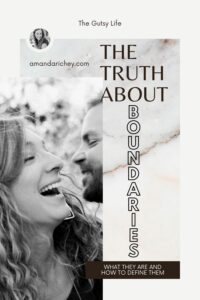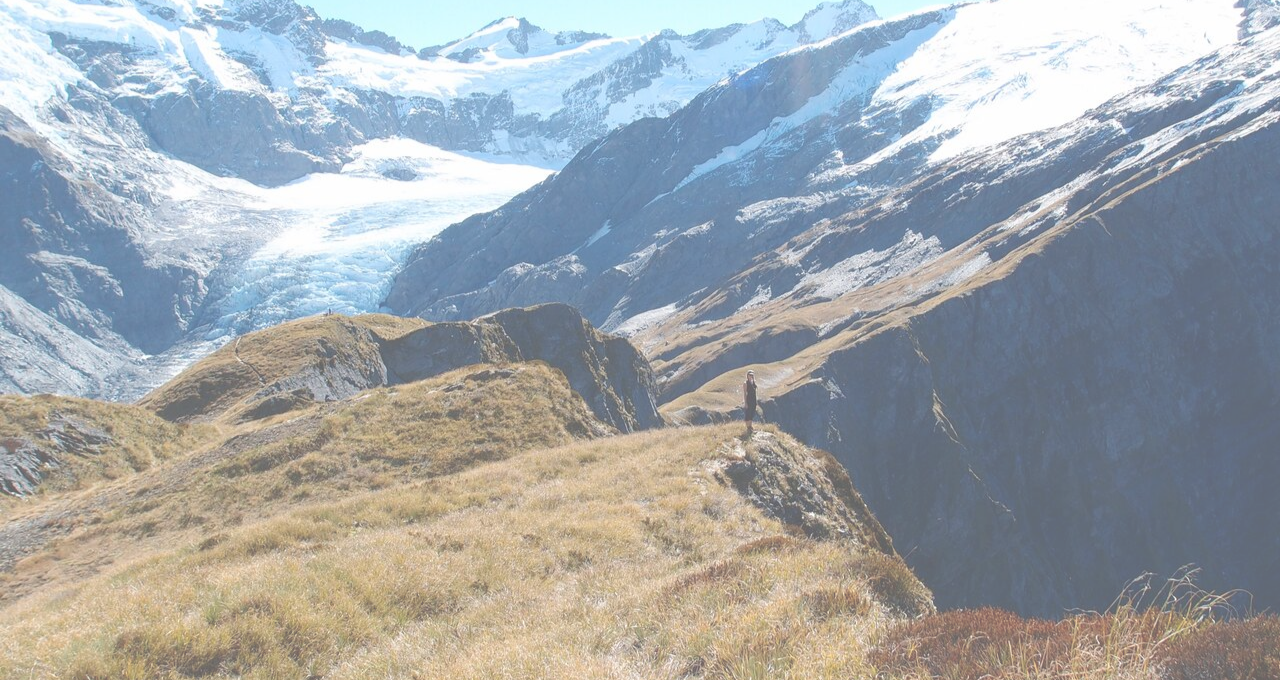
While diving into my summer of radical self-love, I came to the realization that boundaries are a vital part of self-love, and that I didn’t know the truth about boundaries, about what they are, or how to define them.
If there’s one thing I’ve learned on my journey of self-growth, it’s that whenever a concept or idea seems murky or I want to avoid it, that’s usually the thing I need to pay the most attention to. So, I dove in head first and after a year of research, I think I’m finally getting it…
The Basics:
Boundaries are guidelines that people create to establish how you wish to interact with others and what kind of behaviors you will accept from others. For example; what kind of language, physical contact, or personal information you are comfortable sharing with another person. This kind of healthy boundary setting can ensure that your relationships are mutually respectful, appropriate, and caring.
Great!
But then I came across some other stuff that really pulled at my heart and made me sit up and take notice:
“Boundaries are finding a way to be generous towards others while continuing to stay in your integrity.” – Brené Brown
“Daring to set boundaries is about having the courage to love ourselves, even when we risk disappointing others.” – Brené Brown
“Setting boundaries and staying generous towards others is letting go of the potential we see in people. How we want them to be. How we believe they ‘could’ be. And instead, accepting and finding compassion for who they are right now in this messy (and completely human) moment.” Tammy Faulds (my coach)
The first definition of boundaries was clean, simple, and understandable:
Yes, I know when it is okay or not okay to be touched, asked certain questions, or made to feel a certain way. And yes, I can speak up when those boundaries are crossed.
But no. I don’t know how to be generous towards others while loving myself and standing my ground. I don’t know how to be in my integrity and ask for what I need without fear of letting others down. I don’t know what that looks like in real time, actionable steps. I don’t know what it looks like to have those boundaries.
These quotes made me realize I had no idea what real boundaries were, which clearly meant I had some boundary issues myself. These explanations really rang true to me, and it took me almost a year of researching and practicing radical self-love to even begin to understand boundaries, what they are, and how to define them.
The Truth About Boundaries:
- Boundaries are having love and integrity with yourself.
- Boundaries are staying out of people’s messes and keeping them out of yours.
- Boundaries are about loving others without judgment by understanding empathy and common humanity.
1. What are Boundaries: Practicing Self-love and Self-Integrity
Practicing self-love is about loving yourself because of your flaws, not in spite of them. It is about an abundance mindset. It is knowing, believing, and acting on the knowledge that you are worthy of love. It’s about having your own back, supporting and loving yourself no matter what, and having the guts to speak up for yourself and what you need. Loving yourself and holding boundaries creates integrity.
You start by honoring the boundaries you set for yourself, like creating and sticking to a work-from-home schedule; setting aside a certain amount of time every day for self-care; limiting your sugar intake; skipping the cocktail tonight, etc. Honoring the commitments and boundaries you set for yourself will help you build trust in yourself. When you trust yourself, it’s easier to hold the boundaries you set with others.
Value your time and space. Sometimes the best thing you can do is take care of yourself. This can be hard to hear. Especially as women. We have been conditioned to think that taking care of ourselves is selfish, but valuing your needs and taking care of yourself sends the message “I care enough about me and you to support you taking care of your needs too”. Do not apologize for your needs, because when you do, you send the message that others should too.
By holding your boundaries, you end the cycle of self-abandonment. When you respect yourself enough to honor your needs, desires, and values, you send a message to yourself and others that you have a strong sense of self-awareness, self-respect, and self-worth. That is having love and integrity for yourself.
Define the Boundary: I love myself enough to ask for and take what I need, and that fact makes me worthy.
2. What are Boundaries: Separation (Staying Out of Other People’s Messes)
Staying out of other people’s messes is realizing that they do not control your feelings and likewise, you cannot control theirs. You are only responsible for you. Do not blur the lines between other’s struggles and your own. You can only take care of you and your needs. You cannot stay in integrity and out of judgment if you are trying to change someone else.
What other people do has nothing to do with you; only you control your feelings
When you let someone else’s words or actions dictate your feelings, you are giving up your power and not holding a boundary. Don’t let their actions mean anything about you. When you can love them despite their actions and be detached from the outcome, you are holding a boundary and being in your own integrity.
Stop people pleasing. Do not please others over yourself. Helping others out of obligation or a need to please is not holding boundaries with yourself. You are not within your integrity, so you feel resentful or judgmental towards the person you are helping instead of love and compassion. If you do things out of a sense of ‘should’ and ‘supposed to’ instead of recognizing your own needs, you end up resenting yourself as well.
This can be especially hard as women. For me, this is an issue with my husband and kids. I am always helping out of a sense of duty and necessity, not purely out of love, which builds up into resentment instead of compassion. I also do the same thing with myself. Instead of recognizing my struggle and being compassionate with myself, I do things out of a sense of ‘should’ and so I resent myself when things don’t go my way.
“Each time you break your boundaries in order to ensure someone else likes you, you end up liking yourself that much less.” – Brianna Wiest.
Stop trying to ‘help’ or change others. Setting boundaries and staying generous towards others is letting go of how we want them to be. When the boundary comes from resistance it becomes about them. When you believe the other person needs to change, you are mentally and emotionally focused on them rather than focusing on caring for yourself and taking the actions you need to care for yourself.
A boundary is a function of love and respect. I love you enough to have an uncomfortable conversation for what is okay for me and what is not okay for me. Because I care about you and respect you that much.
Define the boundary: Only I control my feelings. I will not let another cross into my feelings and control them.
3. What are Boundaries: Practicing Empathy and Common Humanity
The more clearly you communicate your boundaries without judgment, the more you can remain compassionate and generous with others and yourself. You can’t love others without resentment if you are trying to please them by allowing them to cross your boundaries. The compassionate thing to do is to be honest about your boundaries so that you can be empathetic to them, not judgmental.
Assuming the best in people will help you to see the humanity in others and remain in your integrity. To assume the best in people we have to practice empathy and common humanity.
Empathy is taking the other’s perspective and not placing value on it. Common humanity is the idea that our struggles are part of the human condition. We all struggle, we all screw up, we all suffer, and we all feel pain, loss, guilt, shame, and joy. When we understand that others are struggling just like we are, we can remember that it is not about us. We extract all ego from the equation and can then be generous and compassionate towards their struggles.
This is a real struggle for me, and many of us, I am sure. It is so easy to make a person’s actions or words about us. But, if we can take a step back and remember that we are worthy no matter what they do or say, and that their issues are theirs alone, then we can empathize with them and remain in integrity with ourselves.
Define the Boundary: Your feelings are about you not me. I hear you, we are all in this together.
The Truth About Boundaries
You have to love yourself and maintain your integrity in order to stay out of other people’s messes and keep them out of yours. When you do those things first, you have the space to practice empathy with others and love without judgment. This is what Brene Brown calls “boundaries of steel.”
This is hard. This takes Guts. I struggle with this on a daily basis, and you will too. We will never arrive at a place where we can always hold firm to our boundaries, but if we can understand what it looks like to have healthy boundaries, then we can adjust and shift our actions when we realize we have slipped and crossed a boundary with our self or with others.
When we have the Guts to set and hold our boundaries, we affirm that we are worthy and loveable, and we show others that they are worthy and loveable too.





I was pretty pleased to uncover this website. I wanted to thank you for ones time for this wonderful read!! I definitely savored every part of it and I have you saved as a favorite to see new information on your site.
Thank you! I am glad it was useful!
Thank you, I am so glad you found it useful!
Thank you very much for sharing, I learned a lot from your article. Very cool. Thanks. nimabi
Thank you very much for sharing, I learned a lot from your article. Very cool. Thanks. nimabi
Amazing, to have come across your page. This is the beginning to a great start for me to create health boundaries in my life! Thank you for sharing your experience with us.
I am so glad that it resonated with you! Healthy boundaries are so important, I wish you well on your journey and thank you for the read and comment!